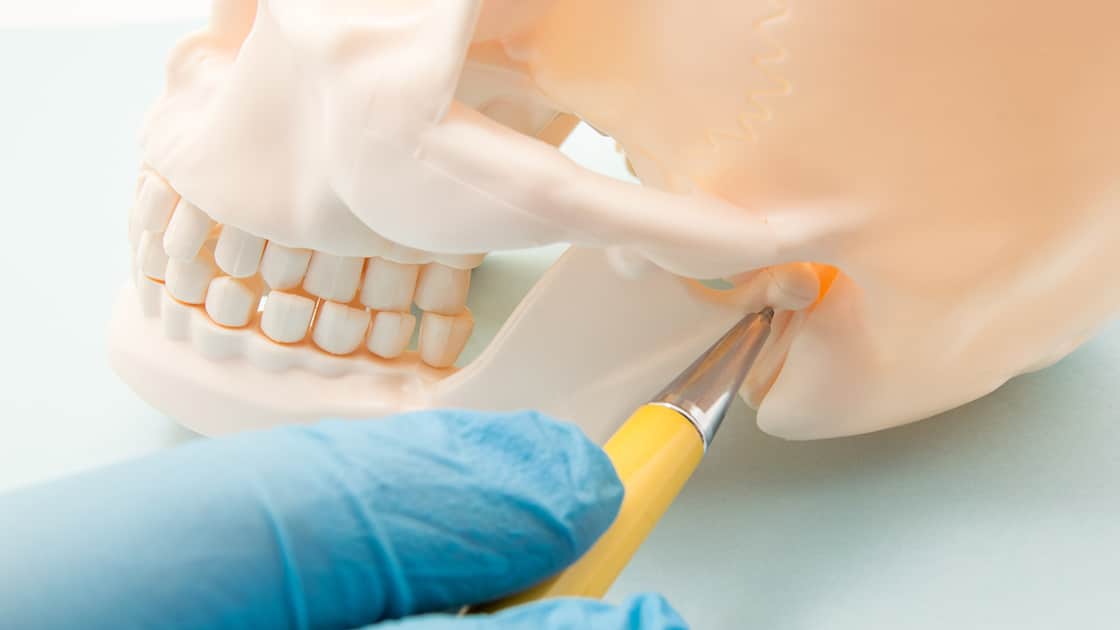
Greater Essex Dental provides TMJ disorder treatment in Merrimac, MA.
Call us at 978-346-4610 for more information or to make an appointment.
What Is TMJ Disorder?
TMJ disorder is a condition that causes pain in the joints and muscles that control your jaw. TMJ stands for temporomandibular joint. The temporomandibular joints connect the upper and lower jaws. When they are inflamed, they can make it difficult to chew, yawn, sleep, and relax. Since TMJ can affect your quality of life, prompt treatment is best.
Signs You Need TMJ Treatment
Following are the signs that you may need treatment for a TMJ disorder:
- Pain and tenderness around the jaw
- Pain in and around the ear
- Pain on chewing or yawning
- Pain in either or both temporomandibular joints
- Joint locking that makes it hard to open or close your mouth
- Aching pain in the face
TMJ disorders may cause one of these symptoms or a combination.
Treatment Options
Our office provides custom 3-D printed occlusal guards that help your jaw stay in the proper position. Patients usually wear them at night, though people with severe pain may also need them during the day.
In the most severe cases, your dentist may recommend surgery, but for most patients, non-invasive methods are enough to ease the pain. The critical thing to remember is that TMJ is treatable.
Why Choose Greater Essex Dental?
Our comfortable, family-friendly patient environment is welcoming. We combine high-tech equipment and techniques with a compassionate outlook. Our office is in downtown Merrimac, MA, convenient to Interstate 495. If you need TMJ disorder treatment, we are ready to help.
Frequently Asked Questions About TMJ Disorders
Frequently Asked Questions About TMJ Disorders
It can be challenging to pinpoint the root cause of TMJ disorders, but possible contributors include jaw injuries, arthritis, or genetics.
How does TMJ disorder work?
The temporomandibular joint is a sliding hinge. The disk in the joint can move out of alignment or erode. The cartilage can break down due to arthritis. Patients could damage the jaw joints in an accident, causing TMJ to develop.
Does grinding your teeth contribute to TMJ disorders?
In some cases, people who grind or clench their teeth may be more vulnerable to TMJ. However, some people who grind their teeth never develop TMJ. A combination of genetic, environmental, and behavioral issues may cause the disorder to develop.
What are some other methods I can use to feel better?
Physical therapy can help many people with TMJ. Strengthening exercises along with stretching have the most benefit. You can also try applying ice or moist heat to the sore joints. Some patients may also benefit from counseling to help deal with habits and behaviors contributing to TMJ disorders.
Call Greater Essex Dental
If TMJ disorders keep you from enjoying your life, call Greater Essex Dental at 978-346-4610 to make an appointment. We can relieve your pain and prevent it from coming back.
